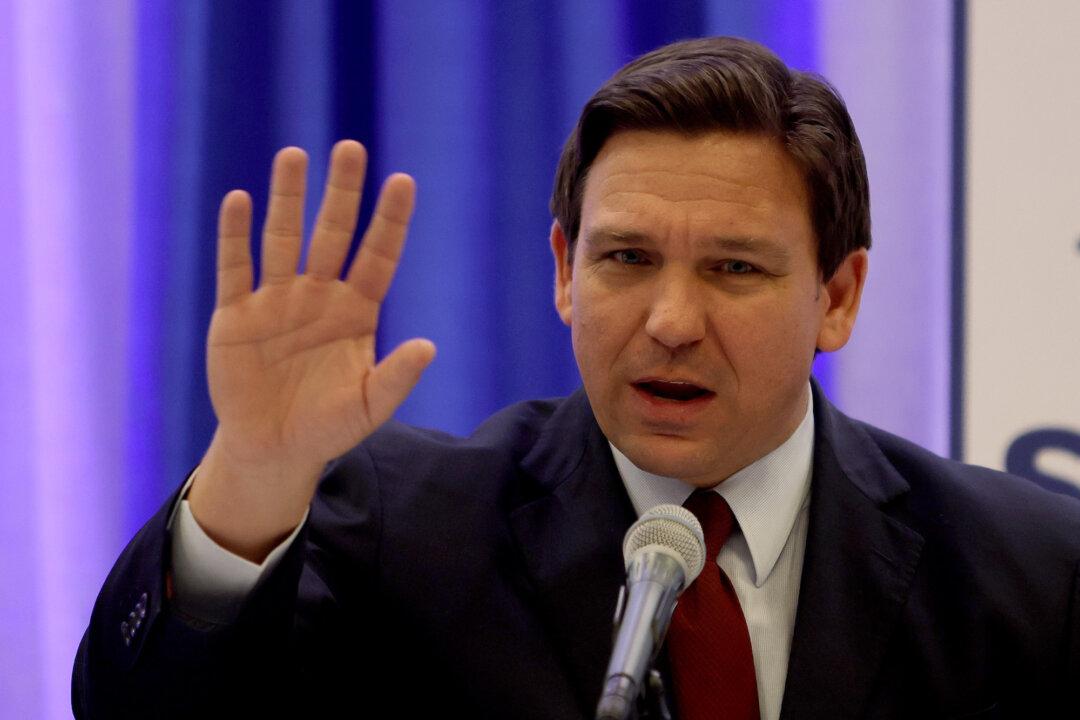Florida Gov. Ron DeSantis waded into Elon Musk’s Twitter buyout saga on Tuesday, saying that Florida would look into holding Twitter’s board of directors accountable for breaching their fiduciary duties after its members adopted a “poison pill” tactic to thwart Musk’s takeover attempt.
DeSantis made the remarks at a press conference in The Villages, Florida, in the context of a discussion on a higher education reform bill that he signed into law on Tuesday.





